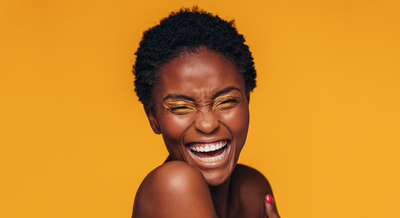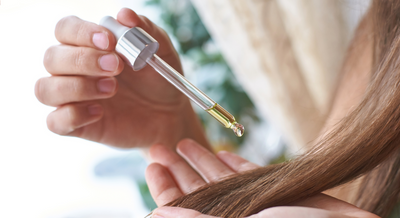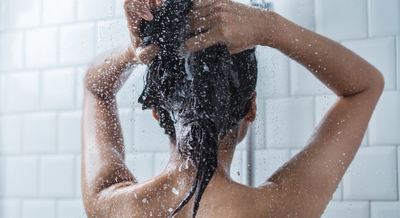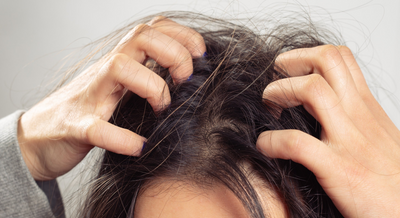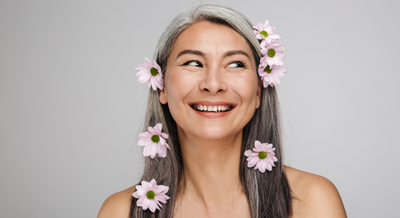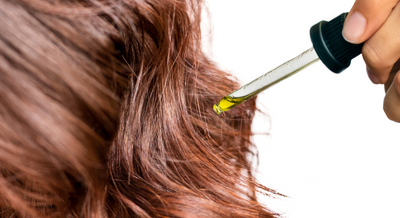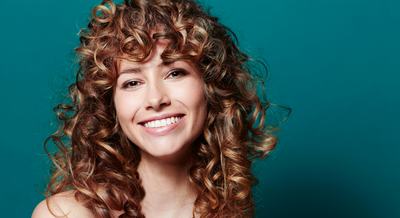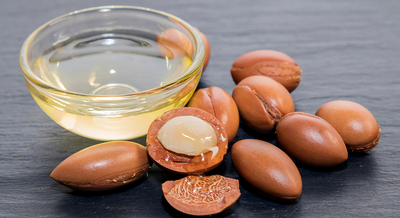Although hair thinning is incredibly common, it can be immensely distressing for some people. Luckily, most of the time, hair thinning is a slow process, meaning you still may have enough time to figure out the solution.
Causes
Hair loss is a continuous process. The American Academy of Dermatology (AAD) has discovered that people lose 50–100 hairs each day as part of a healthy hair cycle. After older hair falls, new hair starts to regrow from the same hair follicles. If you start losing more than 50-100 hairs a day, then there could be an underlying reason as to why. Some of these reasons may include the following:
Genetics (heredity pattern hair loss)
The signs and symptoms of heredity pattern hair loss are common and eventually will affect every person. Some people may start to notice the signs as early as their 20s. Over time this condition gradually becomes more severe. Another popular name for this is androgenetic alopecia. In males, it appears as a receding hairline, crown formation and loss of hair from the top of the scalp. It most often happens in a specific pattern you may hear being referred to as- Male Pattern Baldness. While in females, hair tends to thin all over as opposed to a specific pattern. Females can lose a considerable amount of hair, and in some cases, they too can also experience baldness. It is believed it is caused by genes as well as hormone imbalances.
Psychological Stresses
Being in stressful situations may also lead to significant hair loss. Stress can make the hair roots weak and more vulnerable to damage. The more fragile hair then quickly falls out, causing great loss of volume. It is usually a temporary condition. If you get rid of your stressors, then hair fall may stop and there is also a high chance of regrowth. Psychological problems may also lead to a condition known as “Trichotillomania.” People suffering from this disorder have an irresistible urge to pluck out their hair from any part of their body (usually from the scalp). As a result of anxiety-driven hair-pulling, the patient may develop bald patches.
Alopecia Areata
Alopecia areata happens when the immune system fails to function properly and begins to attack the body’s own hair follicles. This immune system abnormality may cause round, bald patches that suddenly appear on a person’s body. The patches can appear anywhere, including the eyebrows, scalp, beard, mustache, etc. In some instances, the hair grows back naturally. However, in extreme cases, a person may go permanently bald.
Poor Lifestyle Choices
Having bad habits can lead to troublesome hair thinning. To avoid this, you should aim to drop as many daily unhealthy activities or practices as you can. Here are some lifestyle choices that have the biggest impact on the health of your hair.
- Poor diet: For the proper maintenance of hair, the body requires essential nutrients. Eating a healthy and well balanced diet can help with overall hair health and growth.
- Too much heat styling: Regular heat styling can damage hair and leave it dull, dry and frizzy. To prevent that from happening, be sure to use heat protective products before using heat based styling tools like curling irons, blow dryers and straighteners.
- Not enough sleep: Being sleep deprived can lead to hair thinning as well. When you are not getting enough sleep, then the body's stress level increases. As mentioned above, stress can cause considerable hair loss.
- Not protecting against UV damage: Overexposure to the sun’s ultraviolet rays can leave your hair scorched. Sun-damaged hair is prone to breakage and falling.
- Brushing too much: When you brush you are pulling on hair from their roots. When you overdo brushing, it can cause hair loss by weakening the hair
- Not consuming enough vitamin D: Deficiency of Vitamin D can cause hair to fall out as well.
How can we treat thinning hair?
There are many treatments, but their effectiveness varies greatly. Read on to see which remedies may be the best option for you!
Medications
There are currently several medications available on the market to help reverse hair loss. Some of these include:
- Minoxidil: This medication has proven to be beneficial for both androgenetic alopecia and alopecia areata. People must take it regularly for months to regrow the hair. However, there are many side effects, including skin allergies.
- Corticosteroid injections: This treatment is used almost exclusively for alopecia areata patients. Doctors inject steroids into the scalp where there is a bald patch to help re-stimulate hair growth. The success rate of this procedure does vary and is not always guaranteed to work.
- Immunosuppressants: These medications are to be used for people who suffer from an autoimmune disorder which can lead to baldness.
- Antidepressants: For people that are suffering from psychological issues, antidepressants may help.
- Vitamin D capsules: Consuming vitamin D capsules can help reverse hair loss by treating Vitamin D deficiency in the body.
Hair Transplant
Surgery is yet another option for people who are fed-up with being bald. In this process, hair from elsewhere on your body is taken and implanted in your scalp. The implanted hair will lay the foundation for new hair to regrow. The implantations fall out after a while, and over time, your own new hair grows in the follicle.
Home Remedies
Home remedies can also be extremely effective in helping to eliminate hair loss . There are many home remedies that have been proven to be effective in providing required nourishment to hair, causing the hair to regrow.
- Egg protein treatment: This treatment provides essential nutrients directly to your scalp. Make a hair mask using one egg white, one teaspoon of honey, and one teaspoon of olive oil. Mix all ingredients together and apply. Let it penetrate for a while and then rinse. Do it thrice a week to notice results.
- Aloe Vera hair treatment: Applying Aloe Vera gel directly to your scalp and leaving it on for 45 minutes before rinsing it out with cold water. This will help you enhance hair growth.
- Massage using essential oils: To improve the hair growth massage essential oils such as almond oil, peppermint oil, rosemary oil, lavender oil on your scalp. Doing this regularly stimulates blood flow to the scalp and can help you destress and this will boost hair growth.
- Coconut hair treatment: Take coconut milk and massage into your hair and scalp. Leave it on for a minimum of 20 minutes before rinsing it out.
- Enjoy the outdoors: Staying indoors may leave you with vitamin D deficiency. Try to spend a few minutes outside everyday to replenish your body’s Vitamin D in order to stimulate hair growth.


